What Evolve's monster taught me about the failings of 4v1 multiplayer
Which is worse: being ganged up on, or getting left out? Both of these awful situations evoke a 'me against them' mentality, where you're an individual being attacked or excluded by a larger group. Feeling like no one's on your side is lonely, demoralizing, and frustrating, and I wouldn't wish it on anybody. And yet, one out of the five people in any asymmetrical, four-on-one multiplayer game like Evolve is destined to feel ganged up on and left out. It's the fundamental, unavoidable flaw that seems to be killing this four-vs-one fad before it's even begun: being that singular person against a unified team is depressing at worst, and not very fun at best.
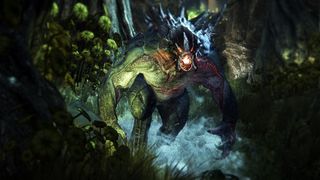
It's been just under a month since the launch of Evolve, Turtle Rock Studios' sci-fi shooter that pits four co-op Hunters against a single player-controlled monster. Multiplayer is the main attraction here, so its longevity - and all the DLC sales that might come with it - hinges on keeping players hooked. But judging by Steam's concurrent user stats, it seems like Evolve is struggling to keep its numbers up to match the multiplayer-focused competition. It's hovering at about half as many players as games like Dying Light and Total War: Attila, which launched around the same time. Though I can't see them, I imagine that Evolve's numbers on consoles aren't much better, if my friends lists and Internet Hype-O-Meter (patent pending) are any indication.
All the explanations you could ever need for the failings of the four-on-one gameplay structure are present in Evolve, so let's break it down by team. As the Hunters, your power is tempered to offset the numbers advantage. Because it's highly unlikely that you'll take the monster down in a one-on-one duel, teamwork and communication are key. You and your fellow Hunters must stalk your prey, activate your abilities, and protect objectives in a coordinated, cooperative way. Win or lose, you do so as a team. That puts a lot of pressure on new players to figure out what they're supposed to do, and fast. But at least they have their squadmates to learn from.
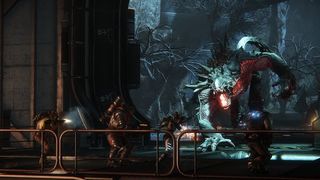
And then there's the monster, which will spend most of its time evading the Hunters until it can evolve (oh, now I get it) into a nigh-unstoppable powerhouse. In the early game, you want to either pester the Hunters or avoid them entirely, encouraging a playstyle that's either annoyingly staccato or barely interactive. Live long enough to achieve your third and final form, and you'll be so hard to kill that the game will pretty much just end. When you win, you celebrate alone (cue the sad sound of a singular party horn). When you lose, it's entirely your fault. A skilled monster has no one there to appreciate the glory of their game-clinching moments; a bad monster has nobody to learn from match after match. If you don't put up a good fight, the round is over too quickly, meaning nobody had a good time.
That all assumes you're playing with complete strangers, which is likely the experience for most of Evolve's playerbase. If you're playing with friends, it suddenly becomes much more fun to snag a kill on a downed Medic before leaping away, or catch the monster with its pants down in a Mobile Arena. Ideally, you'll all be in the same room or online party, bragging about clutch ambushes or groaning about near misses. But then the monster is made privy to the Hunters' plans, which runs counter to the game's whole design.
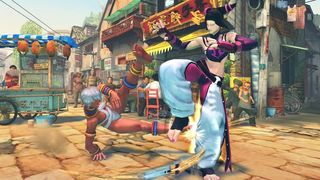
It's not that the problem lies in asymmetry itself. In solo competitions like StarCraft or Street Fighter, where your choice of race or character offers wildly different options, the opponent is the person you bond with. Though you ultimately strive to destroy them in combat, you still wish your adversary good luck before the fight, and shake hands (physically or with a "GG") when it's over. If one of you is feeling nice, maybe you'll even discuss what could've been done better, or how to beat that same strategy in the future.
In asymmetrical team games like Left 4 Dead or Call of Duty, there can still be positive reinforcement, even with zero communication. When you're sitting at the top of your team's leaderboard, or watch someone else secure the kill you helped make happen, it feels like a satisfying pat on the back, even if you and your teammates are all stone-silent. In Evolve, the Hunters are afforded these kinds of constructive multiplayer moments, but the monster is deprived of them.
Sign up to the 12DOVE Newsletter
Weekly digests, tales from the communities you love, and more
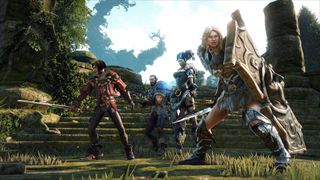
Before launch, Evolve seemed like it was poised to kick off a four-on-one trend in multiplayer gaming. EA's Shadow Realms and Microsoft's Fable Legends both employ the four-versus-one structure, pitting a team of heroes against a manipulative overseer. But BioWare Austin recently announced that Shadow Realms is cancelled, despite the fact that it was playable last year. And our most recent Fable Legends preview poses the question of whether or not the game can actually succeed, with the answer seeming about clear as a Magic 8 Ball's "Ask again later." What could've been a game-changer for innovative multiplayer modes now seems like it'll be more of a flash in the pan.
As the monster in Evolve, the Shadowlord in Shadow Realms, or the villain in Fable Legends, the shortcomings of your unique role are just the same. You have no one at your side to learn from, talk to, or blame your failings on. You're simply alone, being ganged up on by four people and getting left out of whatever merriment or tactical wisdom comes up in their conversation. Some people may thrive on that sensation of taking on everyone all by themselves, and the power trip of being a singular, almighty force amidst a group of interdependent pieces. But I sure as hell don't, and I doubt the majority of players do either. Four-against-one multiplayer can't survive if nobody feels like being that one oppositional outcast. And with the kind of emotional imbalances inherent to four-on-one gameplay, I'm not sure why anyone would.
Lucas Sullivan is the former US Managing Editor of 12DOVE. Lucas spent seven years working for GR, starting as an Associate Editor in 2012 before climbing the ranks. He left us in 2019 to pursue a career path on the other side of the fence, joining 2K Games as a Global Content Manager. Lucas doesn't get to write about games like Borderlands and Mafia anymore, but he does get to help make and market them.
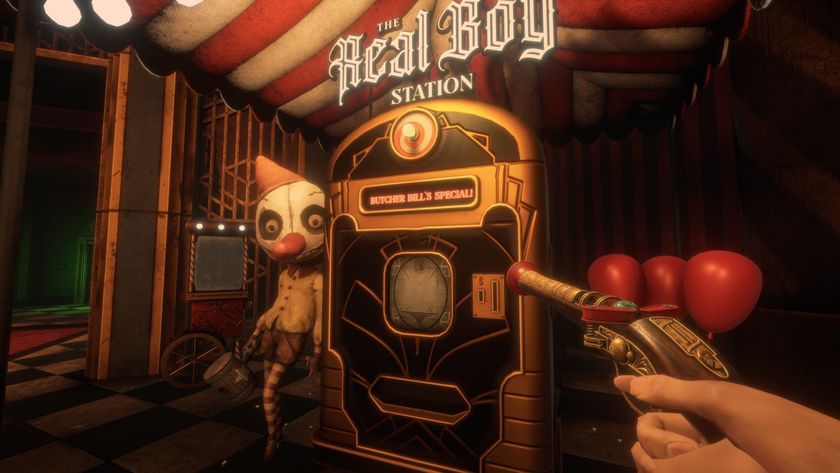
OG BioShock director recommends one very BioShock-y Steam Next Fest game that already has 500 "very positive" reviews
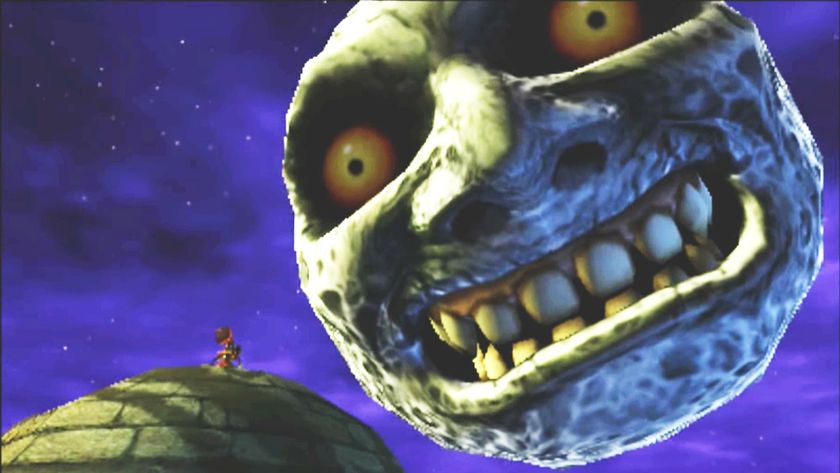
Despite Zelda: Majora's Mask basically being a horror game, one of its key devs didn't think its creepiest features were scary at all: "People on the team were like 'whoa!'"
Most Popular





